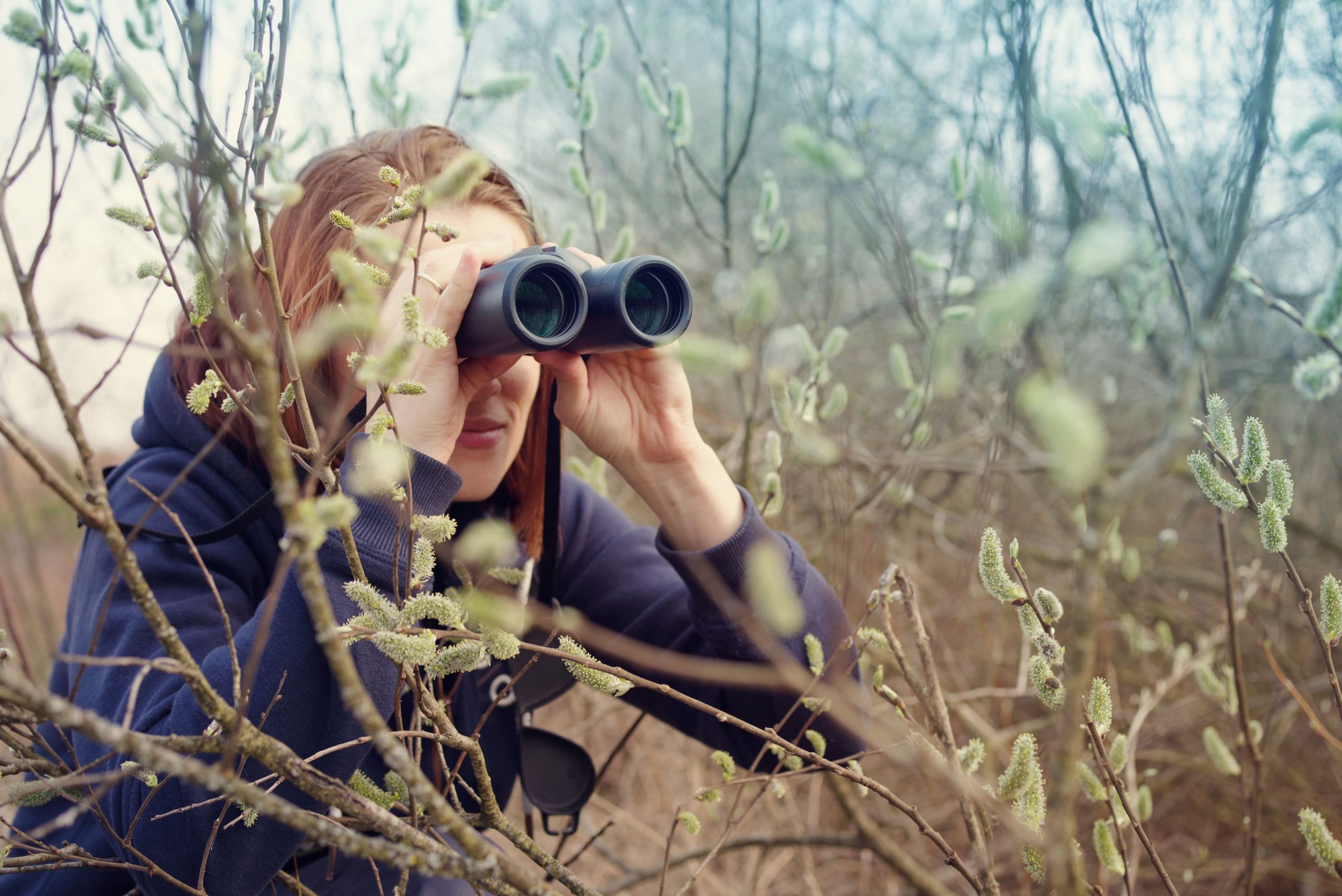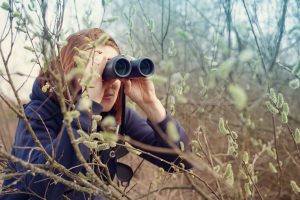Winter just flew by, and it’s officially the first full month of spring, meaning longer days and warmer temperatures. If this isn’t reason enough to go outdoors, the season also marks the return of many migratory birds and the start of the mating and breeding season for a number of them. This makes spring prime time for birdwatching (aka “birding”) in Canada, which is home to over 450 native bird species, from songbirds to waterfowl to birds of prey. Read on for a “bird’s-eye view” of the benefits of birdwatching and tips on how to get started.
3 benefits of birdwatching to tweet about
1. A simple way to get active
Birding is accessible to people of all ages and abilities, and even though observing birds isn’t exactly active, finding them often requires walking, wheeling or hiking, sometimes while carrying gear like binoculars or field guides. Once you experience the high from spotting a beautiful bird, your desire to find the next may “egg you on”, inspiring you to move more than you would normally. Plus, the possibility of seeing different bird species at different times of day may motivate you to go birdwatching multiple times per day, helping you get more active minutes in.
2. Can help your mental health and well-being soar to new heights
Research shows that being in nature in general is excellent for mental health, reducing stress by lowering blood pressure and stress hormone levels, for example. Our feathered friends specifically can benefit our mental health. In fact, one study found that seeing or hearing birds improved people’s mental well-being for up to eight hours.
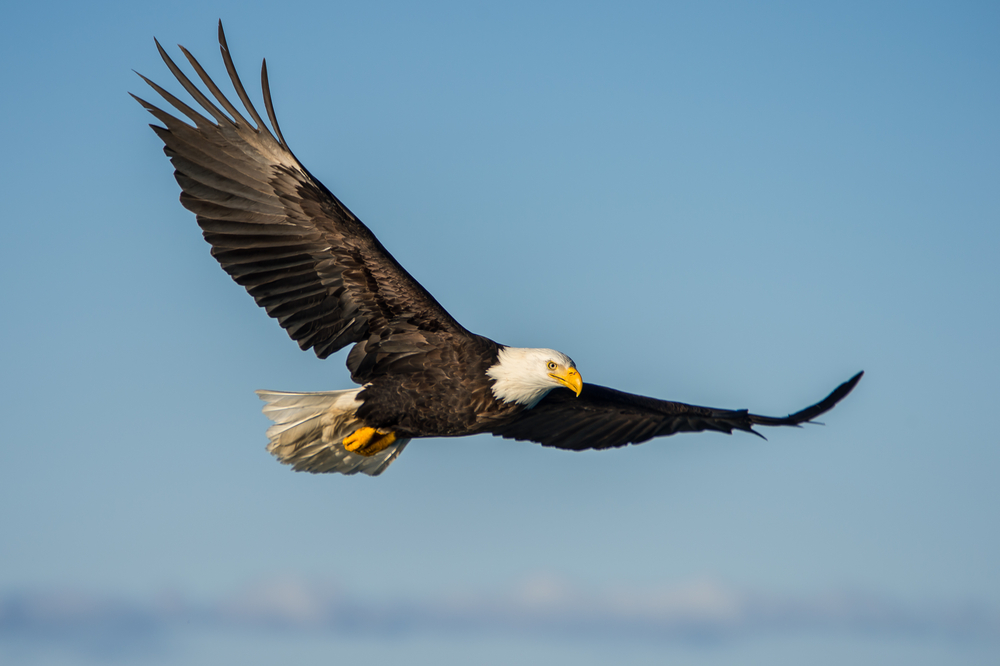
Another study found that the abundance of birds in urban neighbourhoods was linked to a lower prevalence of depression, anxiety and stress. There is also research that demonstrates a link between happiness and the number of bird species around people’s towns and homes.
The act of birdwatching also fosters mindfulness, as focusing on birds’ enchanting songs, vibrant colours and fascinating behaviours can help you appreciate the present moment and “fly away” from your daily stresses. Maybe being a “birdbrain” isn’t so bad after all!
3. Promotes connection with nature and conservation awareness
Birding gives you a chance to connect with Mother Nature more deeply. Seeing birds in their natural habitats can promote a sense of awe and appreciation for the ecosystems that support them, inspiring a desire to protect their habitats and advocate for their conservation. In fact, a study found that wildlife recreationists, including birdwatchers, were four to five times more likely than non-recreationists to perform conservation behaviours like enhancing wildlife habitat on public lands and donating to support local conservation efforts.
4 tips for beginner birders
1. Grab your birding gear
All you need to start birdwatching is yourself and a bird – it’s really that simple! But if you want to take birding to new heights, the following equipment and tools can be useful:
- Binoculars: A pair that ideally has good magnification and a wide field of view can help you get closer looks at birds. If you’re on a budget, you could buy a second-hand pair at a thrift store or online.
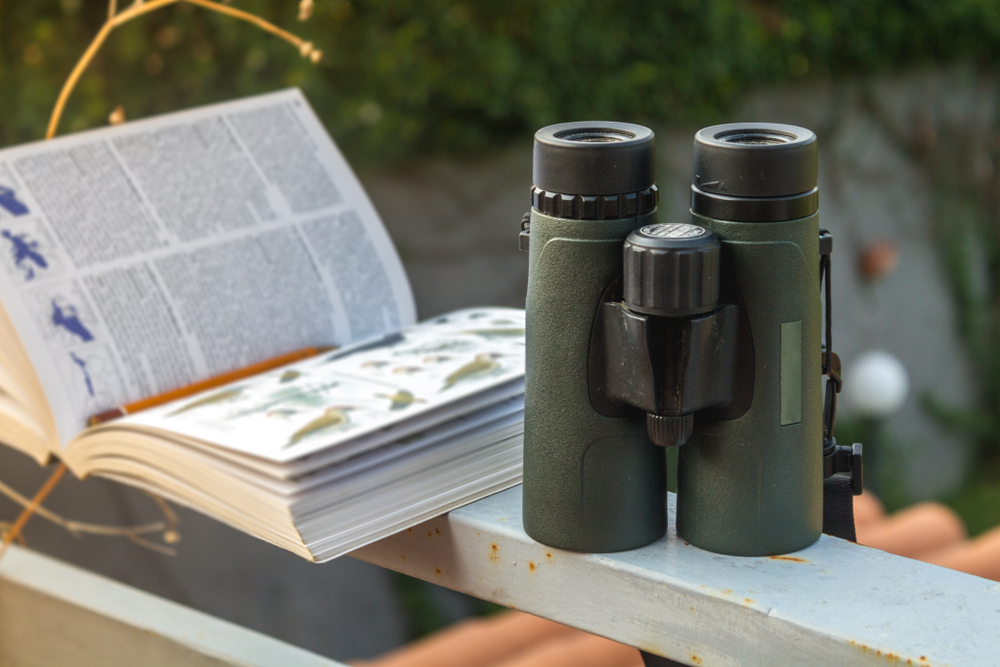
- Bird field guides: Ones with maps, detailed descriptions, photos, drawings and arrows pointing to distinct markings on birds are ideal. The National Geographic Field Guide to the Birds of North America and The Sibley Guide to Birds are perfect examples.
- Birding apps: If you don’t want to buy and carry around a field guide, birdwatching apps are a convenient alternative. For example, Merlin Bird ID, a free global bird guide with photos, sounds and maps, helps you identify birds you see or hear.
- Comfy shoes or hiking boots: As mentioned earlier, birding can often require lots of walking or hiking, so it’s important to wear comfortable footwear.
- A hat, sunscreen, water and snacks: As with any outdoor activity, it’s important to protect yourself from the sun to avoid burns or heat stroke and to stay hydrated and well-nourished.
2. Hatch a plan to birdwatch when and where it’s convenient
The great thing about birding is you can do it pretty much anywhere and anytime, since birds live in almost every environment and are active at various times of day. If you’re just starting out, look for birds close to home, whether it’s at your local park, on a familiar trail or even in your own backyard. Places with abundant water and food for birds, such as wetlands, lakes, streams, areas with berry bushes or forests with many decaying logs, are ideal. In general, birds are most active around dawn or dusk, but you can see them at almost any time of day if you’re patient and observant.
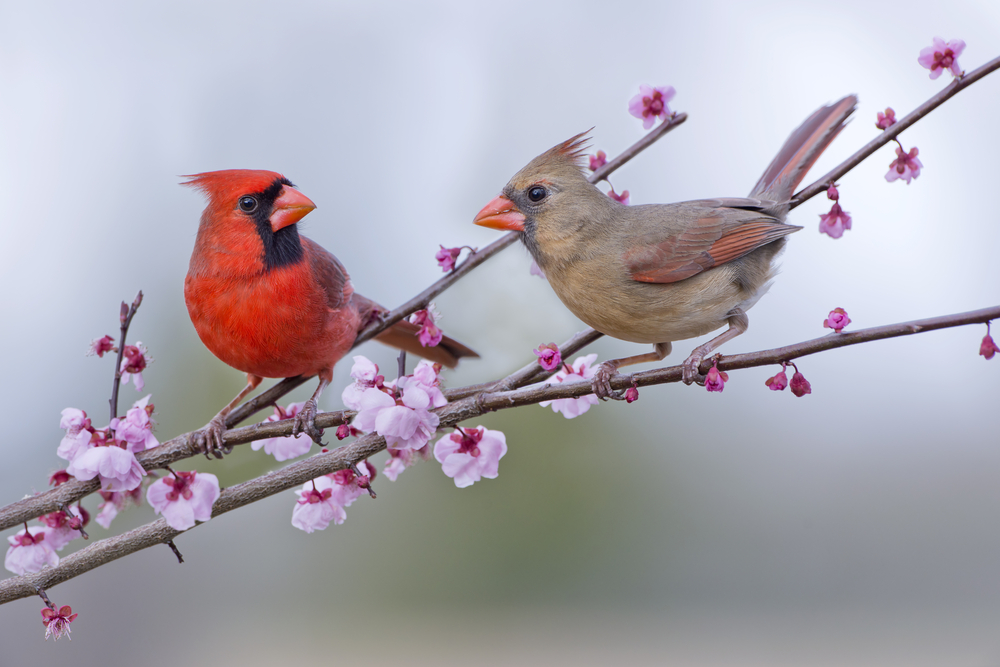
3. Respect the local wildlife and habitats
Always birdwatch from a respectful distance and avoid making loud noises and sudden movements that may scare away or stress out the birds. Make sure not to trespass on or disturb sensitive wildlife habitats as well.
4. Join a local birding group
You know what they say: “birds of a feather flock together”, and with so many local birdwatching groups across the country, this saying applies to birders too. By joining one of these groups, you can connect with others, learn helpful tips from experienced birders and discover new bird observation destinations. Look for local birdwatching groups and events on online platforms like Meetup or Facebook.

5. Participate in Birds Canada’s Citizen Science opportunities
Want to do your part to conserve and protect birds? Consider participating in Birds Canada’s Citizen Science programs available in every province and territory. Sharing your skill and bird sightings through these research and monitoring programs helps inform conservation action.
From offering an accessible way to get active to benefiting your mental health and well-being, birding offers countless perks. So, grab your gear, go outdoors and get to know our fascinating feathered friends a little better!


